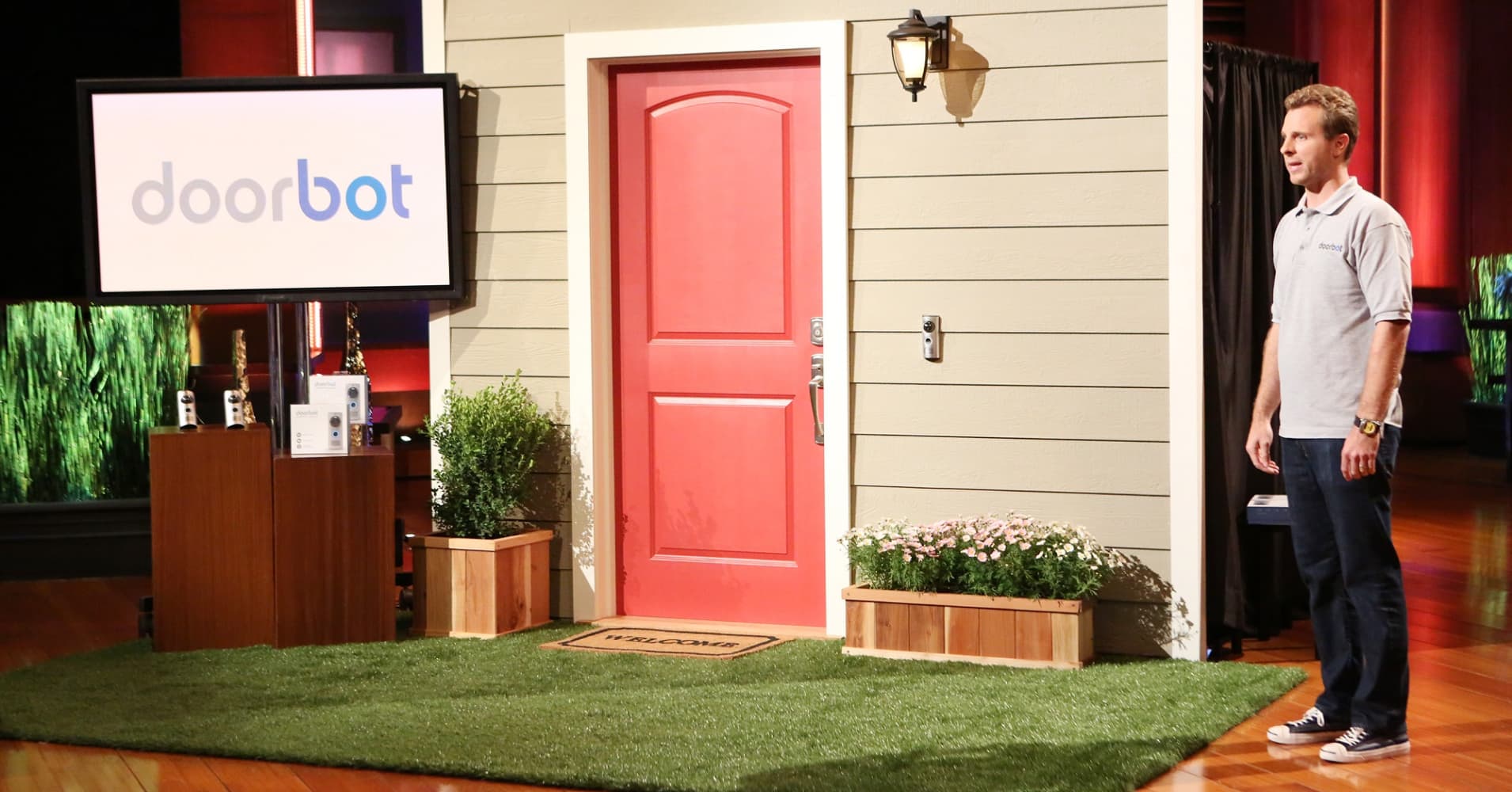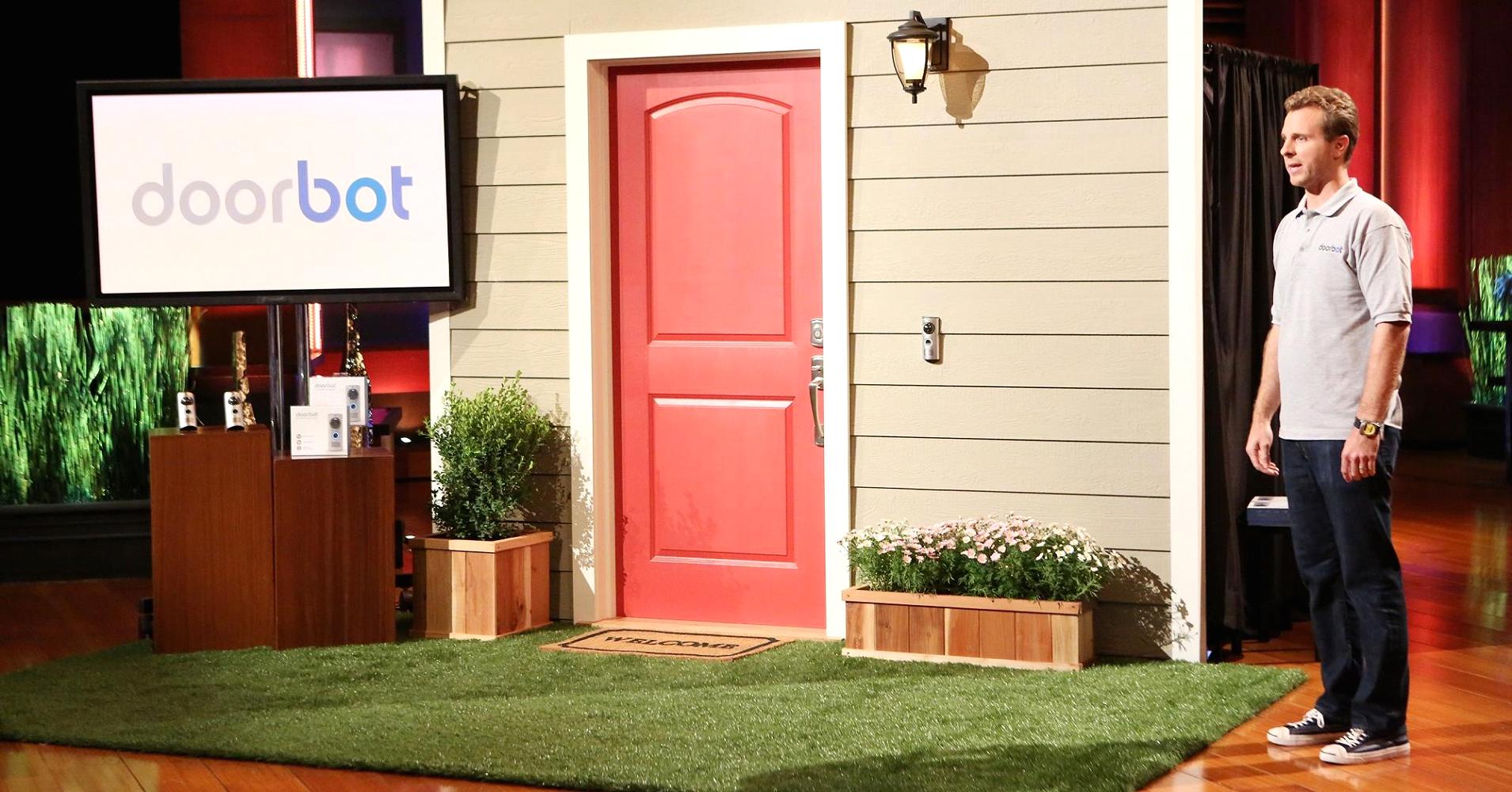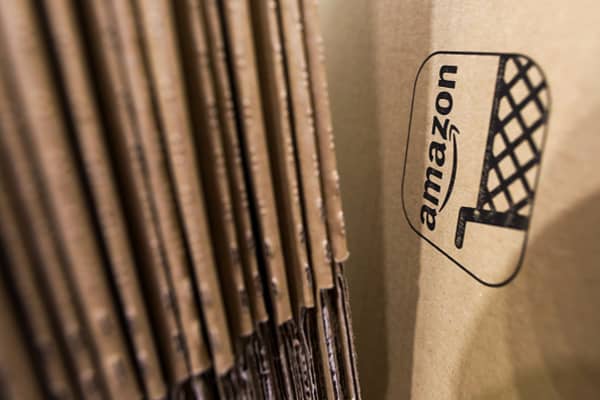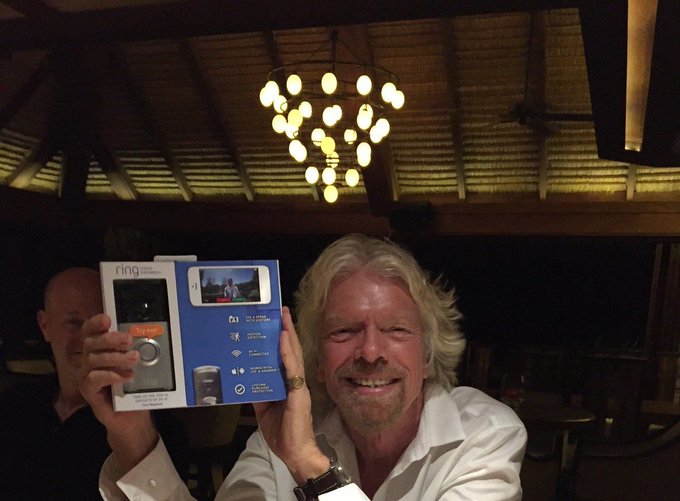Amazon is buying Ring, a business that was once rejected on ‘Shark Tank’

Tuesday, Amazon agreed to buy Ring, a company that makes smart doorbells, according to representatives of both companies.
“Ring’s home security products and services have delighted customers since day one. We’re excited to work with this talented team,” an Amazon spokesperson told CNBC Tuesday. While the official deal hasn’t yet been announced, it could cost Amazon over $1 billion, according to Reuters.
For Ring’s CEO and founder Jamie Siminoff, achieving such success wasn’t easy. In fact, there was a time when he couldn’t even get an investment on ABC’s “Shark Tank,” and thought his company might go broke.
Siminoff went on the reality show in 2013, pitching his business that was then called Doorbot. It sold a WiFi-enabled doorbell that allowed users to see video of and talk to people as they arrived at the front door. All of the investors but Kevin O’Leary passed, and he made what Siminoff considered an unacceptable offer. Doorbot didn’t make a deal.
“I remember after that ‘Shark Tank’ episode literally being in tears,” Siminoff told CNBC Make It in November. “I needed the money, we were out of money at the time.”
He’d sunk $10,000 into building props for the pitch, and the company’s staff of eight had spent a month preparing for the show, according to his blog. After leaving without an investor, it seemed the efforts all may have been a waste they couldn’t afford.
But Siminoff wasn’t just upset about the money. The critiques from investors like Mark Cuban and Lori Greiner about the product’s ability to sell were fresh objections mirroring others’ doubts about his idea.
“I can’t count the number of people who didn’t invest in this, who said ‘no,’ the number of people who said it was going to fail,” Siminoff said. “I don’t think [Microsoft] Excel could hold the number of records for it.”
After Siminoff appeared on Season 5 of “Shark Tank,” the business saw immense growth.
“It has now been four years since ‘Shark Tank,’ and the business is now valued at $1 billion,” Siminoff said on an update for “Shark Tank” that aired Nov. 12, 2017. “Today we’re over 1,300 people, 10 core products, [sold in] 16,000 stores.” Ring even landed Virgin Group billionaire Richard Branson as an investor after he saw one of the company’s products.
Richard Branson declined to comment on the Amazon deal to CNBC Make It through a spokesperson Tuesday.
Before his doorbell idea, Siminoff built and sold a handful of other companies, one for a price tag as high as $17 million in 2009, according to the Los Angeles Times. (The profits were split between Siminoff and his partners, and Siminoff invested his share in new businesses.)
He’s a constant inventor who has been tinkering since he was 7 years old. Siminoff remembers projects like a blanket through which he could pump icy water from an aquarium to cool down on hot summer days as a kid. And despite early success with other businesses, like SimulScribe, offering voicemail transcription services, or Unsubscribe, which promised to declutter email inboxes, he wasn’t fulfilled. None of his ventures had captured his whole imagination.
So in late 2010, Siminoff set up shop in his garage and put all his focus into dreaming up new products. There was just one problem: He couldn’t hear the doorbell ring from his work space. He looked for a product that could buzz his phone with a notification when someone rang and couldn’t find one.
“I literally built myself a WiFi doorbell,” he said, not seeing it as a future business but a solution to an annoying problem. He remembered thinking, “I need this damn thing so I can be in my garage inventing.”
Then his wife remarked how much safer she felt with a device that could tell you who was knocking before you let them inside. When he began to envision a bigger mission around home security, he realized he’d found his idea.
Doorbot launched in 2012, and by the time the “Shark Tank” episode aired in 2013, costs had begun to mount for the upstart.
“At that time our team was 8 people, working in my garage and going out of business,” Siminoff wrote on his blog. “While we had some sales, we did not have enough to cover the massive costs that we were going to face in creating the product and company we have today.”
Although the “Shark Tank” judges didn’t invest, publicity from the episode helped to catapult the company out of its financial woes.
“After ‘Shark Tank,’ we started selling Doorbots like crazy and that drove sales to $3 million within the year,” Siminoff said on ABC’s update. “As the business grew, we didn’t want to be just one product, so we built a whole line of home security solutions and re-branded it as Ring.”
As for the concerns the “Shark Tank” investors voiced after his pitch, Siminoff stopped worrying.
“Now it is kind of all funny,” he joked. “Lori said, ‘You’ll never be able to sell this on QVC.'”
In a QVC appearance, Siminoff said he sold “140,000 units, $22.5 million dollars worth of sales in 24 hours, one of the most successful sales they’ve had of the year.” The Ring Video Doorbell 2 was featured as “Today’s Special Value” for QVC on Nov. 25, 2017 for a featured price of $179.95, but QVC declined to confirm the sales.
Still, Siminoff admitted that each rejection on his way to success was a blow.
“I hear ‘no’, it hits me. It hits me square in the chest,” he said. “I just have this thing where I get back up, and when I get back up I’m stronger and I fight harder — but each one of them does hurt.”
One example he gave was a recent legal dispute between Ring and another home security company, ADT. In November, a Delaware judge ordered Ring to halt sales of its Protect Security Kit, “pending the outcome of a lawsuit,” according to Consumer Reports. The suit has since been settled.
“That hurt really bad, but I can tell you I will stand up and be better and bigger, and fight harder from being pushed around like that. But, it does hurt each time,” Siminoff said.
But for Siminoff, challenges aren’t a reason to quit. He said he goes for a long run, picks himself up and refocuses.
“It might be the competitive side of me or something, I’m just not willing to fail,” he explained. “I think the only way to fail is to stop, and so because of that I’m just not willing to stop.”
[“Source-cnbc”]







